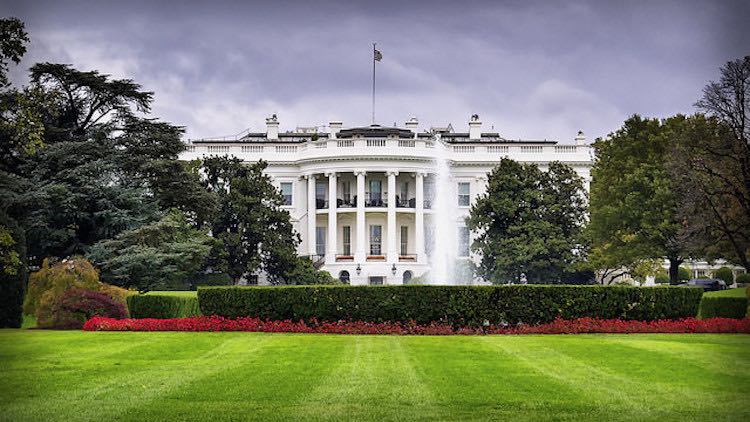Trump Takes Aim at CPB Once Again

The smarter way to stay on top of broadcasting and cable industry. Sign up below
You are now subscribed
Your newsletter sign-up was successful
President Donald Trump has once again recommended phasing out federal funding for noncommercial TV and radio--comprising about 15% of noncom's total budget--but if recent past is any guide, he does not have enough support in Congress on either side of the aisle.
The phase-out was part of the President's budget, submitted to Congress last week. The budget is a recommendation, with Congress having the ultimate power of the purse.
That budget recommends phasing out funding over a two-year period, pointing out that the majority of funds comes from private donations, which the White House suggests could pick up the rest of the load.
Current federal funding is about $445 million per year. The President wants to allocate $30 million per year over two years for wind-down expenses, covering personnel costs of $20 million; rental costs of $30 million; and other costs of $10 million.
The Corporation for Public Broadcasting, the independent entity created by Congress to hand out the money, is forward funded in an effort to insulate it from politics.
Under justifications for the phase-out, the budget explains: "[P]rivate fundraising has proven durable, negating the need for continued Federal subsidies," it said. "Services such as PBS and NPR, which receive funding from CPB, could make up the shortfall by increasing revenues from corporate sponsors, foundations, and members. In addition, alternatives to PBS and NPR programming have grown substantially since CPB was first established in 1967, greatly reducing the need for publicly funded programming options."
CPB begs to differ.
The smarter way to stay on top of broadcasting and cable industry. Sign up below
"There is no viable alternative to the federal investment to accomplish the mission that Congress assigned to public media and that the American people overwhelmingly support," said CPB President Patricia de Stacy Harrison of the latest White House foray into its funding. "Without the federal investment, the entire public media system and the unique services and value provided to rural, small town and urban communities would be devastated. Harrison is former co-chairman of the Republican National Committee.
“Federal funding is the foundation of the uniquely American, public-private partnership of the public media system. The support of Congress, combined with private funding, enables locally owned and operated public media stations to promote early learning, prepare young people for job opportunities, provide critical emergency alert services in partnership with public safety officials, and tell authentic stories in ways that enhance our civil society."
American Public Television Stations was equally unhappy, but appeared confident it had Congress on its side.
“We will continue to make our case with the Administration that public television plays a vital role in American education, public safety and civic leadership, in hundreds of communities across the country," said APTS President Patrick Butler. "We provide the only preschool education for more than half of America’s children, we are the backbone of public safety communications networks at the local, state and national levels, and we do more to equip America’s citizens to do the hard work of democracy than anyone else.
“Fortunately, Republicans and Democrats in the House and Senate understand these contributions -- and our impressive return on the federal investment, which amounts to one-hundredth of one percent of the federal budget -- very well. We are grateful that Congress approved full funding for public broadcasting in FY 2019, and we are hopeful that Congress will increase funding for public media in the FY 2020 appropriations cycle and beyond."
Related: Full Noncom Funding Gets Bipartisan Senate Appropriations Support
Public broadcasting funding has historically been a divisive issue, with many Republicans wanting to de-fund or reduce funding, citing a liberal bias. But President Donald Trump's efforts to phase out funding have been met with resistance from Republicans, many of whom have started sounding like Democrats in their ringing defense of the service as a needed voice and a public service.
Contributing editor John Eggerton has been an editor and/or writer on media regulation, legislation and policy for over four decades, including covering the FCC, FTC, Congress, the major media trade associations, and the federal courts. In addition to Multichannel News and Broadcasting + Cable, his work has appeared in Radio World, TV Technology, TV Fax, This Week in Consumer Electronics, Variety and the Encyclopedia Britannica.

